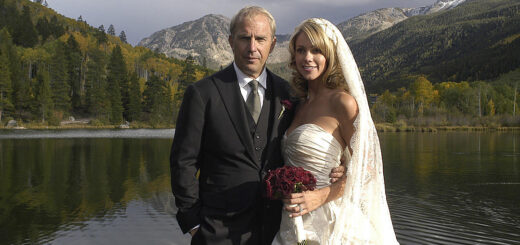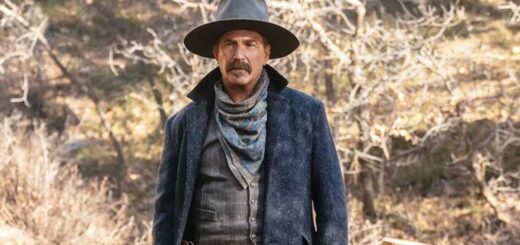Field of Dreams Ending Explained: The True Meaning of the Costner Movie
Field of Dreams: Ending Explained and the Deeper Meaning of Kevin Costner’s Classic
Overview of Field of Dreams
Field of Dreams is one of the most inspirational movies ever made, rich with themes that invite multiple interpretations. The 1989 film stars Kevin Costner as Ray Kinsella, who, after hearing mysterious voices, builds a baseball field in his Iowa cornfield. This field attracts the ghosts of legendary baseball players who never fully realized their dreams. Through this magical journey, Ray confronts his own regrets and unresolved emotions, especially those related to family and missed opportunities. More than just a baseball movie, Field of Dreams explores lost dreams, nostalgia, and the power of reconciliation. It stands alongside classics like It’s a Wonderful Life for its uplifting messages and emotional impact. The film was nominated for three Oscars, including Best Picture, and is preserved in the National Film Registry. The original filming location has even become a tourist spot with an annual MLB game held there, showing the movie’s lasting cultural influence.
What Happens in the Ending
The ending of Field of Dreams reveals that the magical baseball diamond is a place where lost dreams come alive in the afterlife. Terence Mann (James Earl Jones) disappears into the cornfield with Shoeless Joe Jackson (Ray Liotta) and other legendary players, symbolizing the resolution of his own regrets. The last to leave is the catcher, who Ray recognizes as his father, young and happy. Ray realizes the voices urging him to “ease his pain” referred to the guilt and unresolved issues between him and his father. The film closes on a touching scene of father and son playing catch, then pans out to a highway filled with cars lined up to experience the magical field for themselves.
Generational Healing and Understanding
One of the film’s most powerful lines comes from Terence Mann: “This is the future. You don’t belong here.” Field of Dreams addresses the pain felt by older generations who feel forgotten or left behind. It offers a hopeful vision of bridging generational divides by respecting the past while moving forward. The film honors nostalgia without trapping characters (or viewers) in it, instead encouraging growth and healing.
A Tribute to Past Eras and Iconic Figures
Field of Dreams also pays homage to classic cinema, revolutionary authors, and America’s beloved pastime. Burt Lancaster makes his final film appearance, and there are subtle references to Citizen Kane and Harvey. The film acknowledges how cultural icons and eras can become outdated, and it offers a way to reconcile with that reality.
Parent-Child Relationships at the Core
At its heart, the movie centers on Ray’s complicated relationship with his father. When young, Ray resented his father’s high expectations in baseball, but through the magical field, he finally sees his father as a flawed but loving human being. This allows Ray to mend their relationship by sharing a simple, powerful moment—playing catch. The film encourages viewers to see their parents as real people with dreams and struggles of their own.
Letting Go of Regrets
Field of Dreams shows how facing and forgiving past regrets allows people to move on. The ghost players find peace by playing on the field one last time. Ray reconciles with his father, Terence overcomes his disappointments, and “Moonlight” Graham (Burt Lancaster) finally gets to fulfill his baseball dream. The message is clear: by confronting the past, we can change our future. The film’s iconic phrase, “If you build it, he will come,” symbolizes this hopeful truth.
The True Meaning of the Ending
The closing moments suggest that dreams and hope are timeless. Much like Disneyland allows people to recapture childhood joy, Field of Dreams offers a space to reconnect with optimism and the joy of possibility. Even if all dreams can’t come true, maintaining hope and wonder is vital to the human spirit.
Critical Reception and Lasting Impact
Field of Dreams was well-received, earning three Oscar nominations. Its emotional ending, featuring Ray and his father’s game of catch, is considered one of the most moving in film history. The scene has become iconic, regularly cited in lists of the best movie endings. Even modern pop culture continues to reference it, including comedic takes on its fantasy elements.
Is Field of Dreams Based on a True Story?
While the film draws inspiration from real baseball players like Shoeless Joe Jackson and Moonlight Graham, and is based on W.P. Kinsella’s novel Shoeless Joe, the supernatural aspects are fictional. The movie blends historical elements with fantasy to deliver its heartfelt message. Whether true or not, the story’s themes remain powerful and relatable.
How Field of Dreams Stands Out Among Kevin Costner’s Sports Films
Kevin Costner has starred in many sports movies, including Bull Durham, For Love of the Game, and Draft Day. However, Field of Dreams is unique in its emotional and societal depth. Unlike other sports dramas focused on the game or business, Field of Dreams centers on hope, dreams, and healing beyond the spotlight.
A Real-Life Legacy: The Field of Dreams MLB Game
Since 2021, Major League Baseball has held an annual regular-season game near the original Field of Dreams site in Iowa. The ballpark’s design honors the historic Chicago White Sox stadium from 1910-1990, tying directly to the film’s story about the infamous Black Sox scandal. Though the 2023 game was canceled due to stadium renovations, the legacy continues with plans to keep the stadium as a youth baseball complex and possibly host future MLB games.


